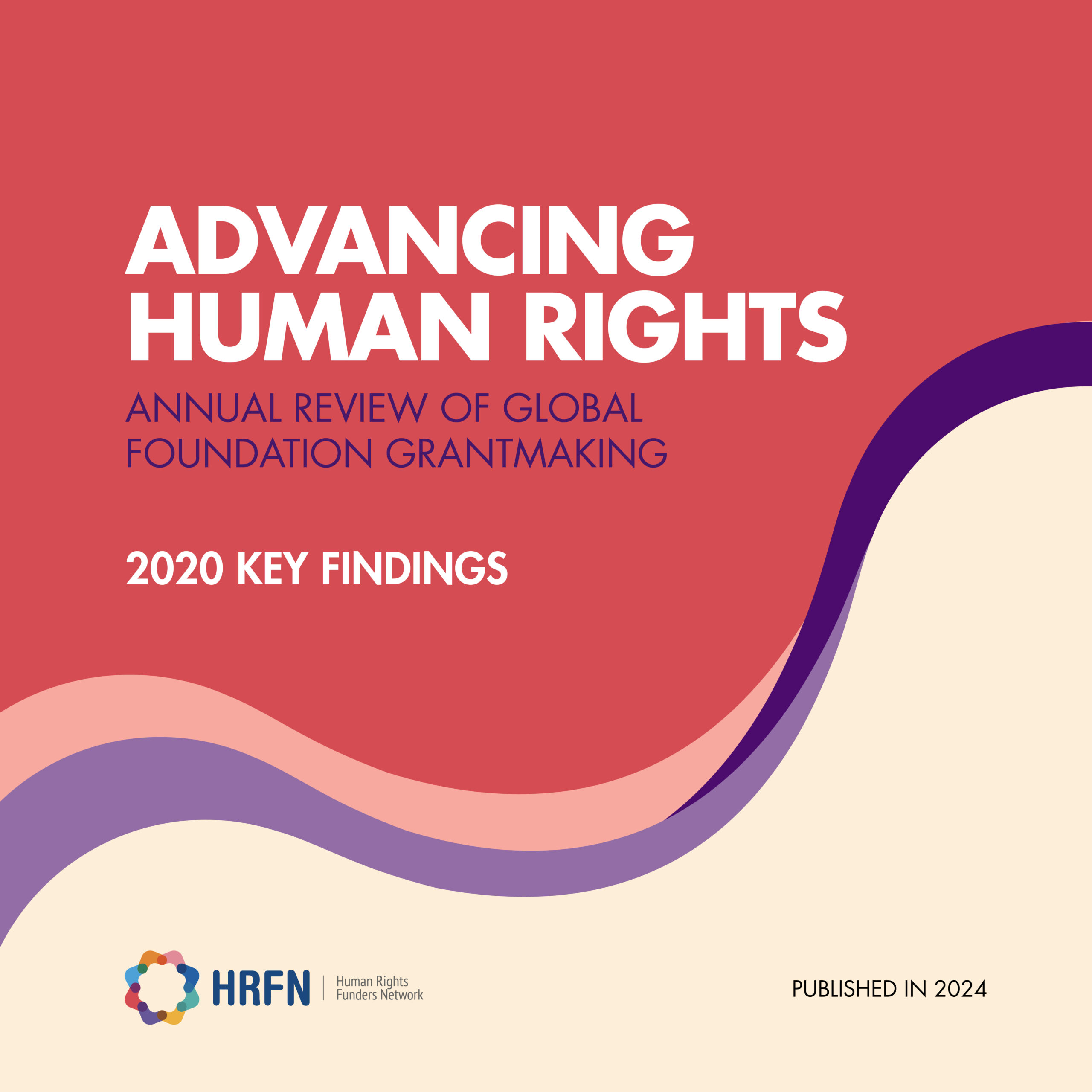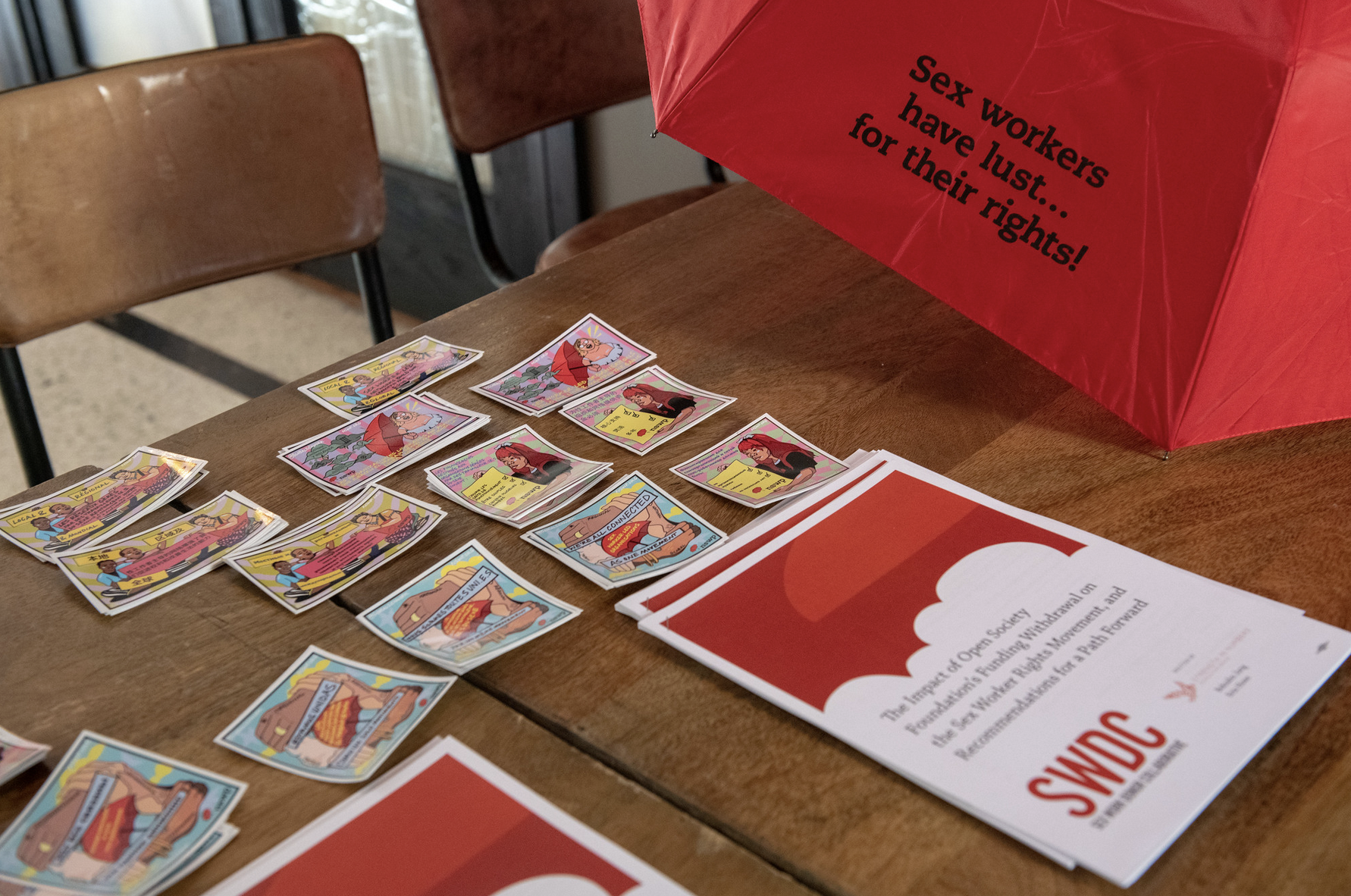Imagining a World Where Philanthropy Is Obsolete: Conversations on the Future of the Sector
By Mandy Van Deven
This article was originally published by Inside Philanthropy on August 2, 2022
Last month, I participated in New Frontiers in Funding, Philanthropy and Investment, a two-day conference that took place in London and brought together people whose work aims to challenge traditional financial systems and advance perspectives and practices that build a better world. Organized by the Joseph Rowntree Foundation (JRT), the gathering featured 57 speakers from philanthropy, finance and social movements and engaged more than 500 people in imaginative conversations about what it takes to acknowledge and reckon with harms that have been done to people and the planet.
The result was a vibrant set of ideas about how we got to this point in history, how philanthropy and finance could be reconfigured to build a better future, and how to start heading down that path in a way that is rooted in repair and regeneration.
“Transitions are times of uncertainty. Right now, we know things need to change, but are unsure of how,” said Sophia Parker, JRT’s director of emerging futures, in the event’s opening. “We have to find the courage, commitment and leadership to bring the future into the present. And as my grandmother used to say: when you’re walking through fog, hold hands.”
Understanding the past
Before we can head in the direction that philanthropy and finance need to go, we have to take time to understand how the past shaped our present ways of thinking and being, several participants pointed out. We have to make visible how inherited narratives about power, individualism, competition and scarcity dictate what is possible to achieve and relegate change to tinkering rather than transformation. Doing so will allow us to see beyond the periphery of what exists and toward an expanse that is truly visionary.
For all the talk about today’s inequality, people often do not frame it within the past 400 years of history that formed our modern economy, pointed out Nonhlanhla Makuyana, co-founder of Decolonising Economics. “The slave trade and colonialism were the foundation of this extractive economic system that seeks maximum profit for unremunerated labor. This is what we mean when we say that all wealth is stolen,” they said. “And in the context of philanthropy, the fact that people have to ask for money that was stolen from them is bizarre.”
In addition, Makuyana said, the accumulation of wealth is often rationalized by longstanding narratives that must be challenged. “People of color aren’t stupid or unlucky, and if it were true that the people who work the hardest have better financial outcomes, then nurses would be millionaires. These are narratives that wealth holders created to justify why they have the money, and why they deserve wealth and others don’t.”
Adding to the theme of understanding history, Vanessa Thomas, director of global programs at Decolonizing Wealth, said, “We are here because they were there. The United States was built on the practice of enslavement of Indigenous people and Africans. The British Empire was the largest the world has ever seen. Centuries of extraction and brutalization were at play in industrializing the U.K. and the U.S., and philanthropy could be righting this wrong.”
This requires that philanthropy operate with a reparative lens, which will look radically different in practice than what they’re used to, she said, referencing participatory elements that are becoming increasingly popular in the sector. “If your staff doesn’t represent the communities you fund, you need to have other formal structures to bring in lived experience and pay market rate for that expertise.”
“Organizing toward philanthropy’s obsolescence”
Laurence Meyer, racial and social justice lead at the Digital Freedom Fund, offered a concrete goal for the sector: “In a just world, there is no need for philanthropy. The fact that it is trying to sustain itself is part of the problem. Understanding philanthropy as a reparation tool is to create the conditions to organize toward our own obsolescence.”
“If you understand philanthropy as a way of returning money that’s been stolen, then you have to change your entire grantmaking framework,” Meyer continued. “Acknowledgement without action is just public relations.”
Recognizing the fact that philanthropy is an institution of the status quo, however, raises the question of whether it can transcend that role. “Decolonizing systems and mindsets must be present in everything we do,” said Jayne Engle, co-director of Participatory Canada. “Philanthropy is a product of colonization, and as such, a question that needs to be central is: Can philanthropy lead a process of decolonization?”
One answer came from Anasuya Sengupta, co-founder of Whose Knowledge?, whose statement was met with affirmative murmurs throughout the room: “The imaginations of those who brought us into the abyss are not going to be the imaginations that get us out of here.”
Other participants suggested that those who benefit from current economic and social systems need to have difficult conversations about that reality, confronting the discomfort that it brings, and speaking out about the harms of wealth inequality. Philanthropy must look to those operating outside of such privilege, who are already working toward transformation.
“If you are comfortable today, if you are safe and well, it means you are protected by privilege,” said Farzana Khan, executive director of Healing Justice London. “Those on the margins are willing the unimaginable into existence. Philanthropy needs to create the capaciousness to invest in the strategies of those who know how to navigate the portal between the old and the new. It needs to resource leaders who are already doing the work in innovation and risk taking.”
Makuyana added that many of these roadmaps toward transformation, in fact, already exist, having been created by communities of color as strategies to survive racism and capitalism. “We think that change has to be flashy and marketable, but these ‘new’ economies aren’t actually new. Solidarity economies already exist, but they do so outside the white gaze—because creating food for your community isn’t valued in the current economic system we live in.”
Acknowledging the burden philanthropy places on communities of color, Khan added, “The responsibility of risk needs to be returned to philanthropy and removed from our communities. Philanthropy has to become skillful in that work; not just look to the community to be hand-holding all the time.”
“Whose job is it to redesign these systems?” asked Alastair Parvin, CEO of Open Systems Lab. “Everyone points to someone else and thinks they’re the good guy — but we are going to go off a cliff trying to do good in a bad bus.”
Ali Torabi, rights and justice programme manager at Joseph Rowntree Charitable Trust, responded with a slight correction. “Some communities have already gone over the cliff. Systems are breaking for some, but for others they’re working fabulously well. Assets have grown substantially over the pandemic, but wages have not. Funders can catalyze conditions that build infrastructure for movement actors to leverage.”
Offering a way that philanthropists can catalyze these conditions, Rebecca Gowland, international director for Patriotic Millionaires, said, “Tax is an investment in the commons. It provides our shared social infrastructure: hospitals, education, legal services, roads, and other fundamentals of our society. People can’t keep going in this economic system. Wealth holders must speak out about inequality and redress this imbalance.”
Ending self-defeating grantmaking practices
On the topic of harmful practices in philanthropy, Roxanne Nazir shared research by the Grant Givers Movement on how ethics play out in grantmaking. She described funders as creating a “race to the bottom” by providing grants that don’t cover the full cost of the work, applying punitive measures when things don’t go according to plan, and engaging in extractive evaluation methods — to name a few. These concerns and others were echoed throughout the two days in the repeated statement that “philanthropy is not fit for purpose.”
“We need to flip the deep, cultural norms that exist within our financial systems,” said Caroline Mason, CEO of the Esmee Fairbairn Foundation. “Look at how long it takes to make a change in your foundation. Now multiply that by society level. That’s the amount of time and effort that’s needed for systems transformation at scale. Yet, most social change funders are still giving one-year project grants.”
Even when funders do make a big push behind a particular organization or strategy, they often charge into a community while holding a limited viewpoint, said Mita Desai, CEO of the Young Trustees Movement. “When homogenous groups make decisions, the blind spots are massive. Funders are constantly pushing the wrong things because they don’t have the people in the room who have the most relevant information.”
While funders rarely if ever experience consequences for such mistakes, a movement group that makes a mistake stands to lose its resources, added Alisha Pomells, funding collaboration coordinator at London Funders. “This creates a dynamic where it’s not OK to make mistakes or share what you learned from a mistake you made, which could help others to not make the same mistakes.”
A large part of the problem is that funders tie themselves up in grant cycles and metrics, when the change they are trying to create doesn’t work in such a linear way, said Thomas. “And stop using the excuse of, ‘It’s tricky and we don’t know how.’ Go find Black-led organizations and give us the money, because we know how.”
Participants also raised that perennial need of organizations reliant upon philanthropy — sufficient and flexible funding. “It’s not enough to fund the operating budget. Fund double the operating budget,” said Imandeep Kaur, co-founder of Civic Square. “When we stop infantilizing people and fund generously, they’re able to engage with knotty problems and come up with solutions that work for their communities.”
Another barrier for funders to overcome in this time of urgent need is the reluctance to move money when they’re feeling uncertainty about areas where they lack expertise. However, Luam Kidane, director of global programs at Thousand Currents, said, “Don’t let money sit while you figure it out. Give it to intermediaries who are further along on the journey. Learn from them, but give them the money to move while you’re learning.”
Looking to the future
For all the critiques of the past and challenges of the present, participants were also looking to the future, undaunted by the necessary change ahead. “Imagining something else is an act of science fiction. We take art for granted instead of seeing its transformative properties,” said Amahra Spence, founder of MAIA Group. “The people who came before me were drawing on their ability to imagine my being here today. They saw me as a possibility. That ability to time travel is everything.”
There was also a strong sense of intergenerational responsibility, as expressed by Daze Aghaji, a 21-year-old climate activist and trustee at Blagrave Trust. “My mother is from Nigeria, so I was raised with the immigrant mindset that our role in life is to make the world a better place for the next generation — and I know what it feels like to have someone safeguard your future.”
“I have gone through this massive journey of being angry that I had to give up my youth to beg politicians to stop destroying our world. Young people are angry because this is not the life we were promised. Our role now is to make the world a better place for the next generation—to build intergenerational trust and, as an elder, hold the ground and add support whenever they need it.”
That also means being unafraid of closing one chapter to begin a new one, pointed out Louise Armstrong of Stewarding Loss. “Endings provide the seeds of new systems that are already emerging all around us. The pandemic forced us to confront endings: of lives and of ways of living that could not continue. Funders need to normalize, invest in, and tend to endings. Getting better at navigating loss is going to be a core skill for us as we let go of the old ways of doing things — and doing so is an investment in the new systems we want to create.”
Laurence Meyer offered a similar sentiment, acknowledging that it can be hard to let go: “Unlearning everything you’ve been taught to do in order to succeed is challenging, emotionally and intellectually. It requires a network to sustain you while you’re going through it; otherwise, you will abandon the journey.”
Her wisdom to do the work of internal, institutional and systems change as part of a community that shares power and accountability is reflected in the ways that many of the speakers are engaging in their work: as co-founders and members of emergent collectives that are enacting the future in the present. It was clear that the conference organizers share this desire to bring people on a journey, and if it’s one you feel compelled to be a part of, they’ve issued an open invitation to join them.



